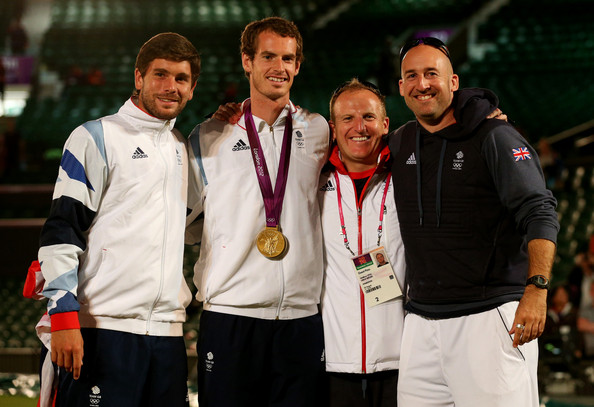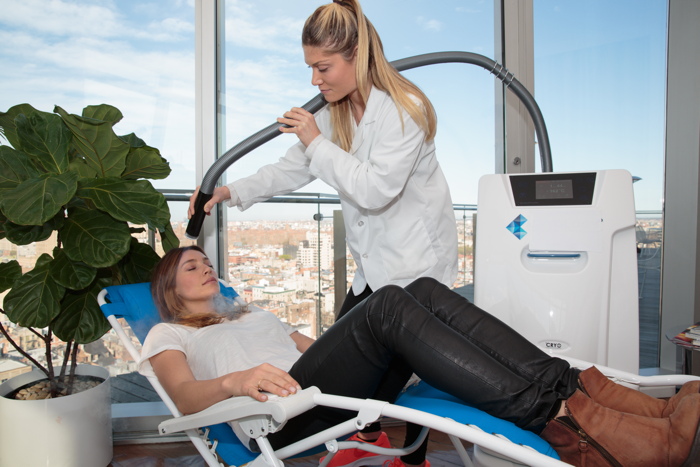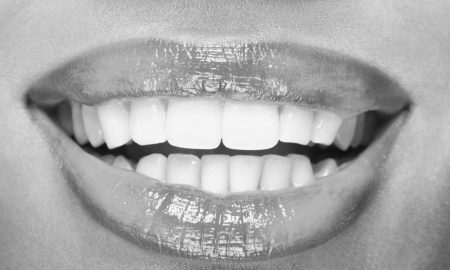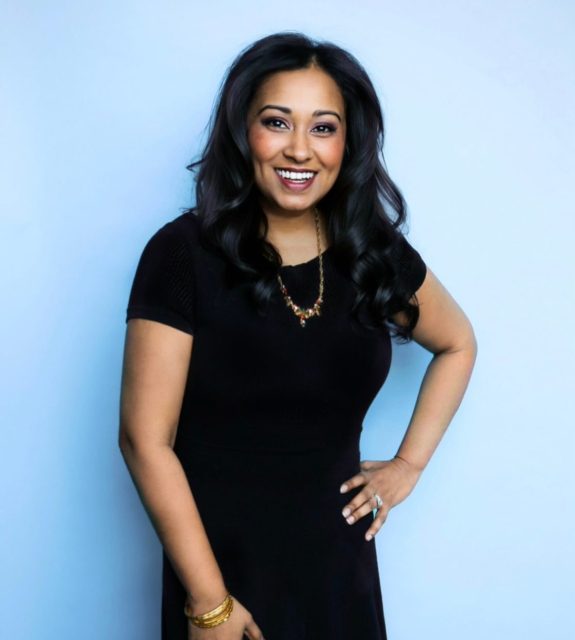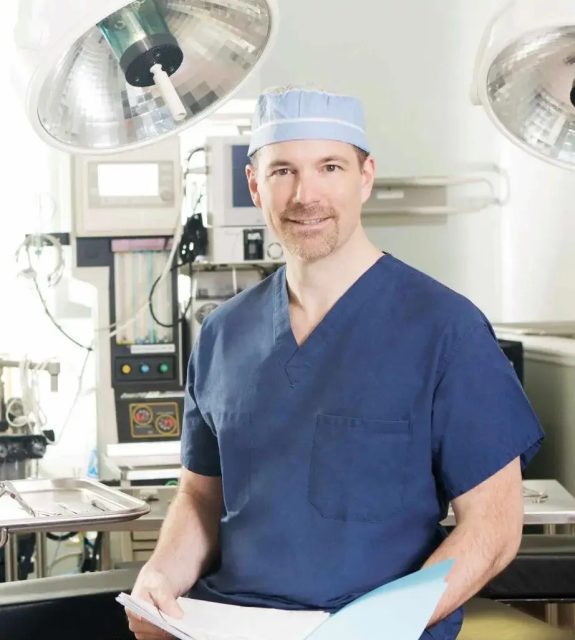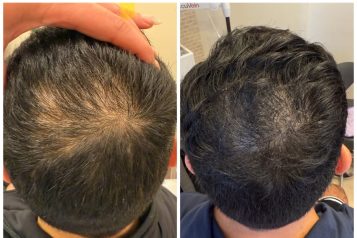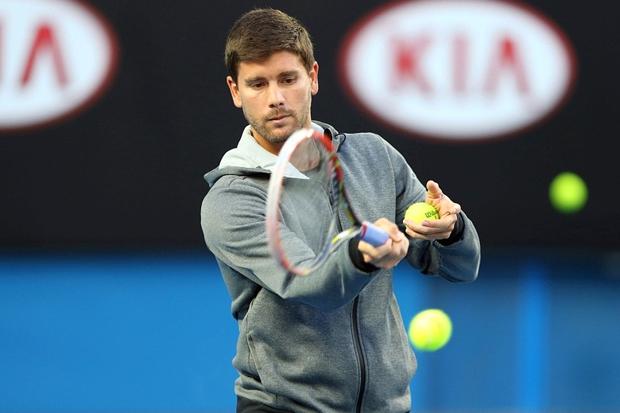 Daniel Vallverdu, head coach of current number 7 world-ranked professional tennis player Tomas Berdych and former coach of Andy Murray, shares his secrets of the game and what it really takes to be on top.
Daniel Vallverdu, head coach of current number 7 world-ranked professional tennis player Tomas Berdych and former coach of Andy Murray, shares his secrets of the game and what it really takes to be on top.
What is your background with tennis?
I have been playing tennis for my whole life. I grew up in Venezuela and I first started playing tennis when I was five years old. When I was 15, I moved to Spain to train. I played tennis professionally before going to college, and I played college tennis at University of Miami. After I graduated, I started to play professionally again, but I got a bad injury. As I was starting to play again after my surgery, I got offered a job with Andy Murray to be a part of his coaching team. I decided to stop playing and took the job. I started coaching when I was 24, and ended up working with Andy for almost 6 years. For the last year and a half, I have been coaching Thomas Berdych.
What is your favorite part of the workday?
I love being on the court. Most of our days are quite long, especially when we are having a training week. Tomas usually does two sessions a day: one in the morning and one in the afternoon. Most sessions are quite long. They are also the most important and best part of my job. I love helping him improve, helping him get better in his weaker areas, and I do most of my psychological work on the court. I also really love the tournaments and the match days.
What is the worst part of the workday?
The amount of time that we have to wait around during tournaments can be very draining. The problem with tennis is that you don’t know whether the match before yours is going to be two hours or five hours. The waiting time before the matches during tournaments can be very draining not only for me, but for the players too.
What is your favorite place in the world for tennis?
My favorite tournament is Wimbledon. It’s a very charming tennis club, because of the history of the tournament. My second favorite tennis club is the Monte Carlo Tennis Club, because of how stunning it is. It really is a beautiful place to play.
What do you consider the highlight of your career?
Being part of the coaching team for the Men’s 2012 Olympics, when Andy won the gold metal was amazing. Andy beat Federer in the final on the center court at Wimbledon. That was the most special moment of my coaching career.
What is the most important lesson that tennis teaches?
Tennis makes you grow as a person from a very young age. You constantly have to problem solve alone on the court, as soon as you start competing. On the court, you don’t have anyone to help you or to guide you as the match is going. Sometime you only have milliseconds, not even seconds, to make a decision. This makes you mature and self confident, and helps you on the court and off the court.
What makes a great tennis player?
You obviously need to be willing to work hard. All of the top tennis players are very dedicated. The amount of time that the tennis player spends training on and off the court is super impressive. A great tennis players needs to have an impeccable work ethic, which is true for all of the guys at the top.
Also, you need to separate your personal life from your professional life. The tennis career is super short- most careers are only ten to fifteen years long, so you need to be willing and to be able to put your personal life aside and give your full attention to the sport. It can be very challenging at times, but you really need to focus to get on top of the game.
How do you improve that type of focus?
You need help from the people around you. They need to understand you and understand your career. It is very difficult to do it alone. Family and fiends need to be a good influence on the player. This type of focus always comes down to the player, but his surroundings can also really help or really hurt him.
How do you do your job?
My role is to understand my player’s game: his strengths and his weaknesses. At the beginning, when I start working with the players, I take a lot of time to watch past match videos and to speak to the player. I need to understand his game, so that I can improve it. The second most important part of my coaching approach is to address the tactical side of the game. I need to understand how my player’s game affects the tour and how it affects their opponents’ games. I come up with tactical plans against the other top guys.
What does a normal training day look like?
Tomas usually wakes up around 7:30 or 8 AM. He has breakfast and he sees the physiotherapist for about 30 minutes. Then, he usually does a tennis warm up with his fitness trainer for about 40 minutes. After that, we do a two hour morning session on the court. Then, he has the chance to go back home, have lunch, rest, lay down, take a nap, if he needs one. At around 3 PM, Tomas will do another tennis warm up for 30 or 40 minutes with his fitness trainer, and we will do our afternoon session on the court for about 90 minutes. After that is done, he will go to the gym with his fitness trainer for about another hour. He will finish the day with his physiotherapist for another hour after that. He usually does a massage or works on whatever physical issue that he had that day. These training days can be pretty long: between ten and twelve hours is normal.
What do tennis players eat?
The ones that I have worked with work out an eating plan with a nutritionist. Most of the guys at the top follow a specific diet for themselves.
What does diet look like?
It depends on the person, but the players usually do a lot of blood tests with the nutritionist in order to figure out an ideal eating plan. At the moment, Tomas is trying to avoid gluten and eggs. Apart from that, tennis players usually eat a really balanced diet. Especially during tournament weeks, they make sure that their intake of carbohydrates is quite high, because carbohydrates are a great source of energy and this is what they really need during long matches.
What is the difference between tennis players and other professional athletes?
Tennis is one of the most challenging sports. There is a huge amount of time and dedication that the sport demands from you. First of all, you cannot have a bad day. A bad day means a lost match. In most team sports, if you have a bad day, your teammates can help you out. It doesn’t necessarily come down to just you all the time. Tennis, because it is a one-on-one sport and because you can’t have a bad day, puts a huge amount of pressure on the player on a daily basis to make sure that he is not only performing, but also doing all the right things every single day to make sure that he is in the best possible shape and condition on match day. Apart from tennis, in most individual sports, you don’t have to compete on a daily basis. With boxing, you might have a fight every three months. With golf, you play a tournament over the weekend and then you can have two weeks off of tournament. In tennis, you are playing every week for ten or eleven months of the year. You might have a week off here and there, but the competition is constant. The mental pressure comes down to dedication and being 100 percent involved in your career, because otherwise it is difficult to not have bad days. Tennis really is one of the hardest sports.







